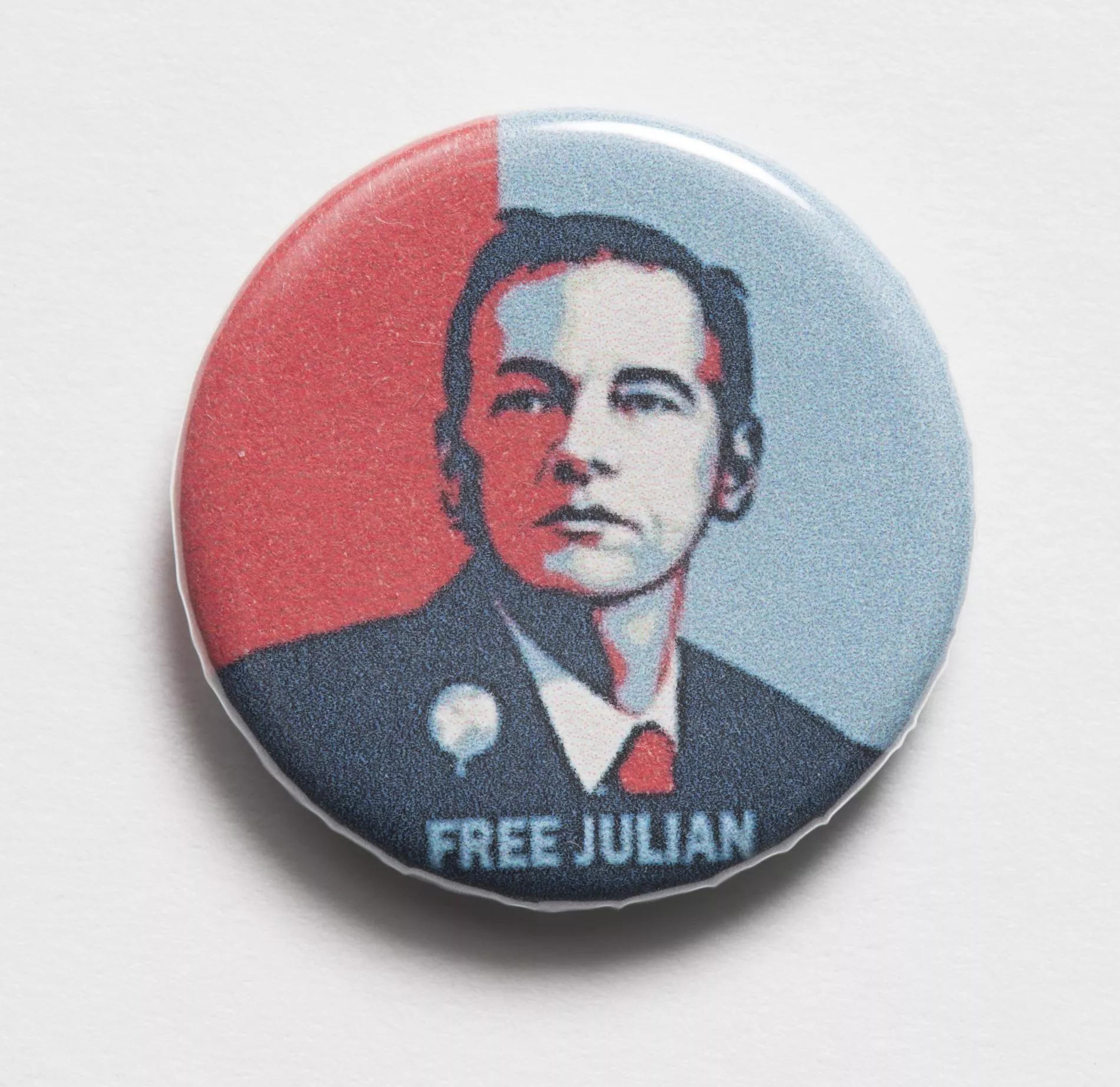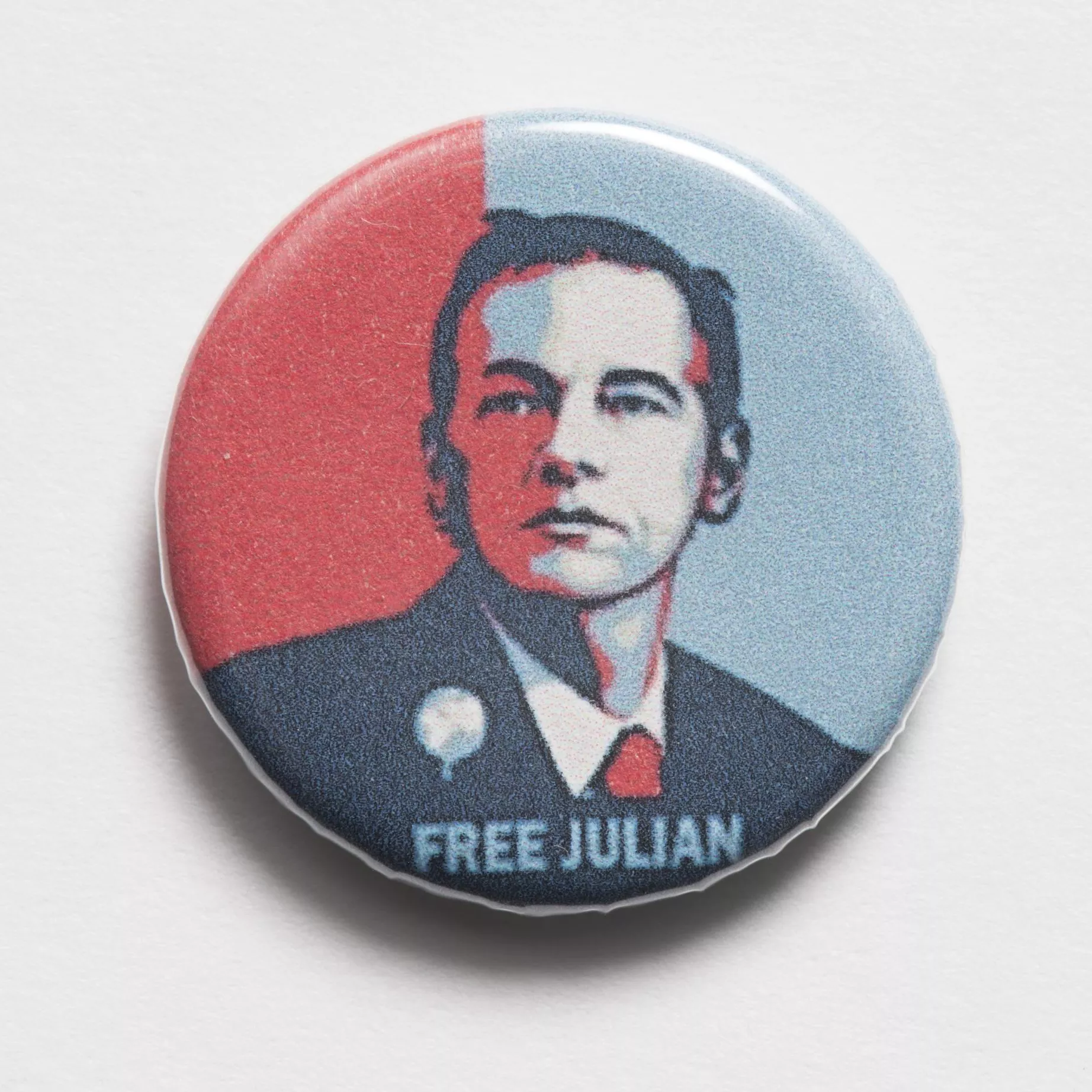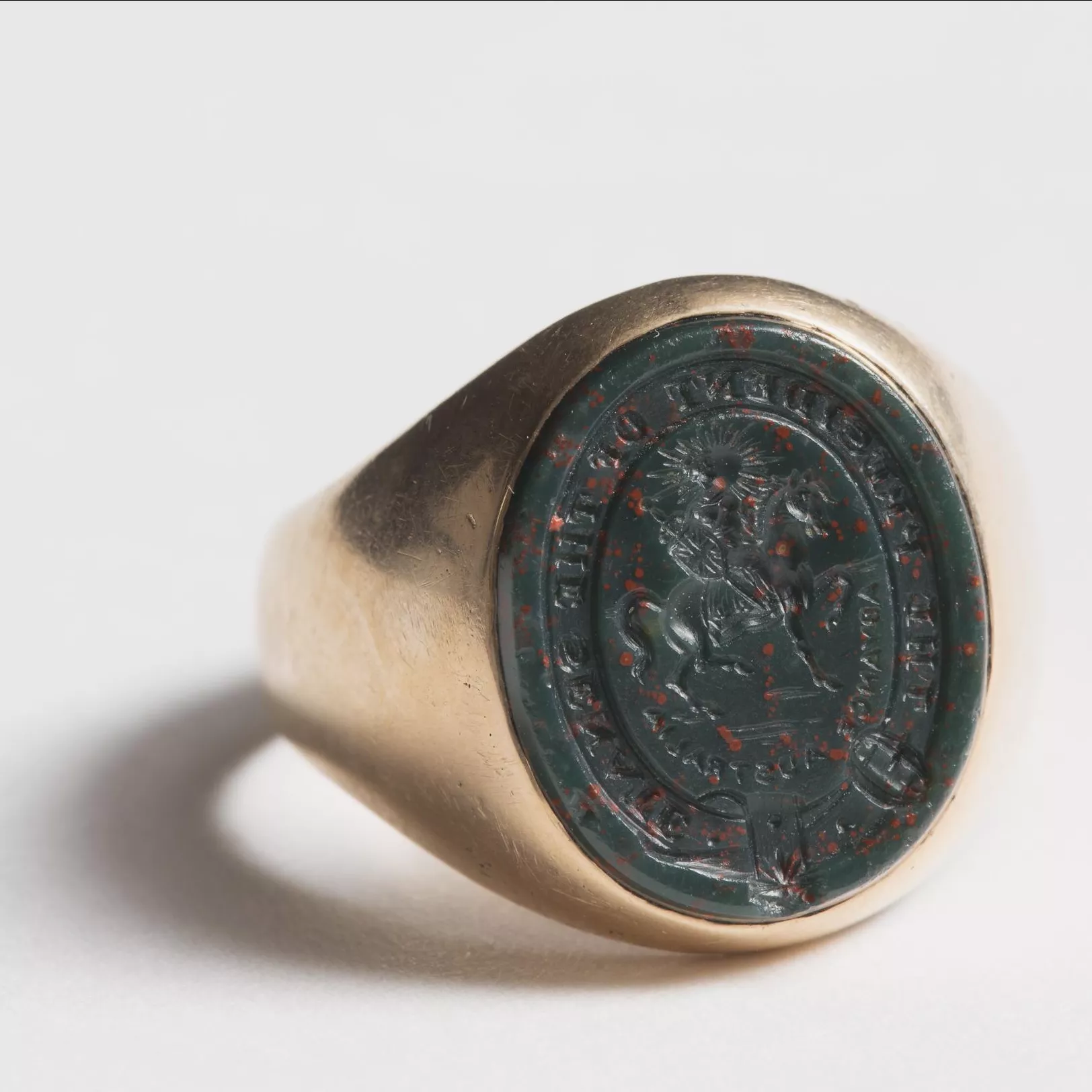Julian Assange supporters' badge
A champion of transparency, or a criminal who published classified documents?
This blue and red badge, featuring an image of Julian Assange with the words 'Free Julian', was produced in support of Assange against his detainment in Britain over Swedish rape charges, and possible extradition to the US over publication of leaked classified documents.

Assange is a divisive figure. His supporters argue that his publication of classified US documents is journalism, which is good for democracy and transparent government, and uncovered corruption and wrongdoing on the part of the US government. His opponents argue that he broke several espionage laws, and put sensitive intelligence operations in danger, including potentially endangering people's lives.
In 2010, the US government launched a criminal investigation into Assange. In December that year, he was arrested in London on separate allegations of sexual assault in Sweden, but he fought extradition, arguing that Sweden would extradite him to the US. In 2012, he sought refuge in the Ecuadorian embassy, where he remained until 2019. He then spent five years in a British prison.
During this time, many public figures weighed in for or against Assange, while a grassroots movement also sprung up to support him, led by his family and friends. In 2020, 160 then-current and former world leaders signed a letter requesting the UK government not to extradite Assange to the US. Signatories included ex-UK Labour leader Jeremy Corbyn, leading intellectual Noam Chomsky, US politician Sarah Palin, American actor Pamela Anderson and US politician Tulsi Gabbard. Leaders who have been critical of Assange include past Democratic presidential candidate Hillary Clinton, US politician Mitch McConnell and former National Security Advisor John Bolton.
In June 2024, after lengthy negotiations by the Australian government, Assange pled guilty to violating the US Espionage Act during an appearance in the US territory of the Northern Mariana Islands. He was sentenced to just over five years in prison, which were credited as having already been served in a UK jail. He returned to Australia a free man.
What is extradition?
Extradition is a process by which a country can request that someone who is currently in another country be sent to the first country to answer for a crime. Criminals cannot simply leave a country to avoid being charged. However, the process is dependent on both countries agreeing to the transfer, and it is expensive so is usually limited to serious offences.
How did Assange get access to classified US documents?
One of Assange's key informants was Chelsea Manning, an ex-US Army intelligence analyst, who pled guilty to numerous charges including espionage and theft. In total, Manning leaked over 700,000 documents relating to the US wars in Iraq and Afghanistan.








